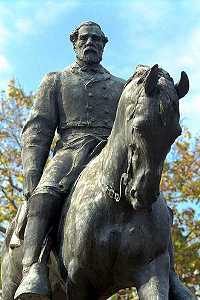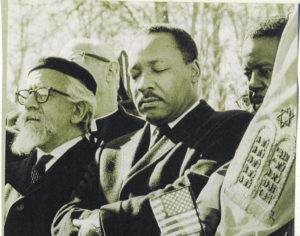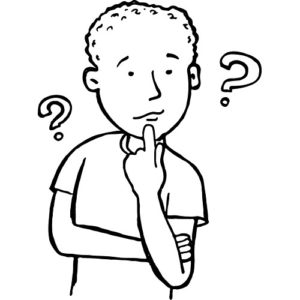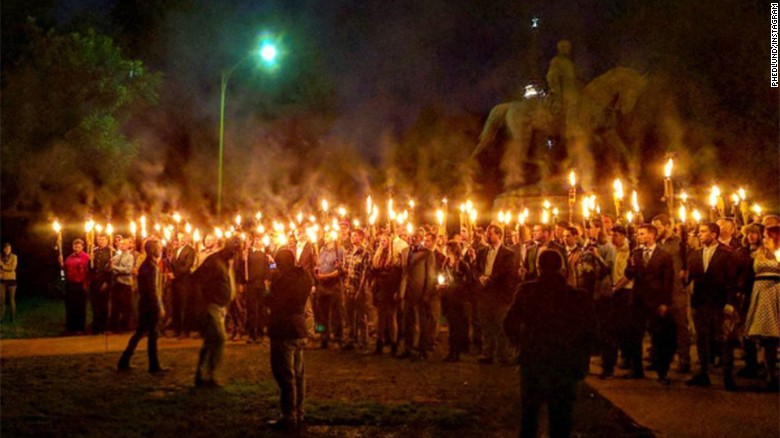Ever since the horrific events in Charlottesville, where an angry crowd of mostly young white men spouted neo-Nazi and white supremacist slogans, and violently clashed with those confronting their message and their vitriol, I have been mulling over the deeper implications of this event. As has been said by many far more qualified and articulate than me, these were morally repugnant incidents that must be unqualifiedly condemned. The President’s failure to unequivocally condemn the neo-Nazi and white supremacist message was deeply troubling, but not surprising, in light of #45’s moral vacuity.
Like many whites who consider themselves anti-racist allies, I want to put as much psychological and moral distance as possible between myself and the neo-Nazi/White supremacists that marched in Charlottesville. Yet, while I was appalled at what they stood for, I was also embarrassed as a white person who has spent his adult life working for racial justice that such a groundswell of racial hatred still exists. And I wondered: where did this come from? Something deeply sick is at the heart of white culture today. And while I despise it, honesty compels me to wonder about the ways by which I benefit and participate it in this sickness.
In the fall of 1971, I went to Durham, NC to attend Duke University. Before classes started that year, I walked through much of the downtown area. I was shocked to see so many statutes commemorating the Southern cause and celebrating leaders of the Confederacy. This week I learned that there actually was a statue of Robert E. Lee on our campus I was not aware of. Not far from the campus there was a small town that had a large billboard on the outskirts that proclaimed “The KKK of Smithfield Welcomes You” (but of course not everyone was welcome). I saw the physical symptoms of segregation in the quality of the roads and homes. I visited a church were the pastor’s wife pleaded with the congregation to fight the racial integration of the public schools. Many years later, I learned that my class at Duke was only the fifth or sixth class to admit black persons into the undergraduate program. As a kid from Minnesota, this was a different world for me, one that shocked and confused me. This was the place where I went to college, a place built on the foundations of slavery, racial segregation and white supremacy.
Many of the white people I met at Duke were seemingly kind and compassionate people, but when it came to the topic of race, there was clearly a culture fixation on maintaining “Southern culture.” While I was at Duke, my racial consciousness was raised, and I am where I am today in terms of my commitment to racial justice largely because of the experiences and relationships I developed there. Even so, I did so unaware of how much privilege I enjoyed because of my whiteness.
While the focus of the Charlottesville protest was on a statue of Robert E. Lee, and the city’s effort to remove a monument trumpeting the Southern cause and the Confederacy, not all of white supremacists are from the South. The man who drove his car over Heather Heyer was from Ohio. Pennsylvania, where I live, has historically been home to one of the largest number of hate groups in the country. I recall one African American professor (who grew up in Georgia) telling me that Minneapolis, where I grew up, was one of the most racist communities he had experienced. I had a similar impression of Boston when I moved there in the mid 1970’s in the midst of city-wide violence related to a busing order to integrate city schools. Despite my initial shock of encountering the Southern cause on as a first year college student, the North has been the home to as much overt racism as the South, and the North is where my life was shaped and formed.
Those of us who have been paying attention can identify ways in which the various social and political systems that are supposed to serve the general populace (e.g. health care, law enforcement, public education, voting rights etc.) are racially biased in profound ways. Yet until the white backlash to the election of Barack Obama, many of us thought the overt, in-your-face racism in the past. However, like the early tremors of an earthquake or a volcanic eruption, we began to see evidence of a violent racist undertow in the formation of the Tea Party, which eventually led to the Trump campaign, and now has exploded in Charlottesville and other places. Many progressive whites have been lulled into thinking that racism was slowly dying, even though our black and brown friends and co-workers kept telling us stories of shootings, unwarranted arrests, unfair labor practices, disparate criminal sentences, and countless micro-aggressions they encounter on a daily basis. Overt racism was legitimized by the election and subsequent actions of the President and his cronies. Black Lives Matter brought those injustices and indignities to the forefront, the Alt-Right responded and the volcano exploded, and here we are.
In all of this my mind keeps going back to those young men chanting Nazi slogans and looking for a violent confrontation. On one level I wonder what has led to be so filled with hate for people of color, and fear for the loss of some sort of place in society as white persons. On a deeper level, I wonder what I am willing to do in response to it. My black and brown friends remind me, these are “my people,” and it falls to those of us who are white to address the sickness and insanity that feed the racist hate and fears of white folks.
 One of the lessons of Charlottesville for me as a white person is that I, and I believe we white folks, have a great deal of work to do. First, we must continue to grapple with what it means to release privilege and power in the name of racial justice and equity. We must find ways to be effective allies who are truly aligning ourselves most threatened and under attack in events like Charlottesville. Second, we need to turn to our white friends, our families, and our co-workers and be willing to risk respect and acceptance and urge them to make that same self-examination, and where necessary make critical life choices to change one’s mindset, one actions, one’s parenting messages, one’s relationships and all other dimensions of our lives where our privilege and power and white folks plays a role.
One of the lessons of Charlottesville for me as a white person is that I, and I believe we white folks, have a great deal of work to do. First, we must continue to grapple with what it means to release privilege and power in the name of racial justice and equity. We must find ways to be effective allies who are truly aligning ourselves most threatened and under attack in events like Charlottesville. Second, we need to turn to our white friends, our families, and our co-workers and be willing to risk respect and acceptance and urge them to make that same self-examination, and where necessary make critical life choices to change one’s mindset, one actions, one’s parenting messages, one’s relationships and all other dimensions of our lives where our privilege and power and white folks plays a role.
In short, we need to be about the work of changing culture, restructuring institutions, and rewriting laws and policies. We must continue to change ourselves toward the goal of building a society that honors people of all races, cultures, and creeds, and makes events such as occurred in Charlottesville not only unacceptable, but inconceivable.
The task of changing culture may seem like a daunting task, but it has been done. Following World War II, Germany made such a commitment in relation to its history of anti-Semitic genocide. Today, in Germany all school children learn about the Nazi regime and the Holocaust, and why it must never happen again. South Africa sought to do the same thing with its history of racial apartheid through the Truth and Reconciliation Commission. Canada has been undergoing a similar truth-and-reconciliation process with its history of injustice toward its indigenous peoples. These examples are not without flaws, but they are examples of white people coming to grips with the reality of their own history of injustice and seeking to change their national narrative and culture. Nothing less can be asked of white Americans and our history of racial injustice toward African-Americans, Native Americans, Latinos, Asian- Americans and many more.
Charlottesville must be call to action. Last Wednesday, I participated with thousands of others in a march called “Philly is Charlottesville,” which focused on white supremacy at work in Philadelphia in areas such as education, wages, and the criminal justice system. I was pleased to see so many white folks there. However chanting slogans, condemning the current administration, removing statures, and singing songs, are only a start. We need to look in the mirror and then at our networks of fellow whites, and do the work that for way too long we have been afraid and loathe to do. I hurt for black and brown brothers and sisters who must live in a culture that calls what happened in Charlottesville “free speech,” but also feel challenged by that hate displayed, which cannot go unchecked and which must be rooted out of our individual, familial and cultural consciousness.



Good post. I don’t think whites often realize that they can use their power to influence other whites to think differently. It goes such a long way. Please continue to have the dialogue
The hatred that the alt right has comes from the same place the hatred from the the alt left has. Both groups are violent and nasty. They are both full of evil. The jerk that drove into the crowd and killed that poor gal should rot in jail or receive the death penalty. But both groups were violent and equally full of hate. Deal with ALL the hate Drick or your writings are meaningless.
We are fully aware you don’t like Trump. So what. Many of us didn’t like Obama. Big deal. You won’t like anything Trump says. That’s clear enough in your writings. Trump clearly denounced the violence but it’s never good enough for you and your crowd.
This conservative clearly denounces all the hatred and violence of these fringe groups. Period.
Yes! The violent expressions of hatred on both sides is wrong and must be condemned. BUT the cause of the hate is very different. On one side it is hate of people because of race or ethnicity. On the other it is hate of the oppression an the suppression of any group. We need to hate what is evil and love what is good.
Actually Steve, I’m unclear as to whom you are calling the alt-left who are violent. In Charlottesville, as in all the other responses to what happened in Charlottesville, counter protests, vigils, marches have been peaceful, no weapons, peacefully opposing – real free speech until those calling themselves neo-Nazis and Alt-right brought in weapons. I’ve participated in two (POWER and MoveOn) and neither included hate speeches nor violence. What I’m seeing on the side opposing all the hatred is not a vilification of people but rather great concern for the hatred and vitriol that has magnified against people to the level of murderous actions against those who are in reality our brothers and sisters. It’s that hatred that has for centuries discriminated against and held people at the lower edges of and under White privilege. Drick Boyd wrote, “White Allies in the Struggle for Racial Justice” that is an excellent read – I highly recommend it. Drew G. I. Hart wrote an excellent book, “Trouble I’ve Seen . . .” that does a great job of illustrating the devastating effects of White privilege on everyone else. If you are willing to look at what’s really happening and the history and roots of it; you will come away with many things to think about and reconsider. My father was a grand dragon in the KKK so I know all the arguments, beliefs, ideologies, philosophical underpinnings of the alt-right – they were woven into the fabric of my thinking as I was growing up and my world views were being formed. In my teens and twenties I had opportunities and relationships that really challenged those belief systems. My goal in life became to have the mind of Christ, to see and understand reality and love like Jesus. To do that I’ve had to remove the threads and cords of so many kinds of dysfunctional, ungodly beliefs that my life is woven into a completely different tapestry now. It appears that these things are weighing heavily on your heart and mind too. I wish you well on your journey.
Shari, I too am a Christian that tries hard to follow Christ. However, I have a different world view than you do. I don’t believe in “white privelge” , whatever that means?? I totally resent the notion that Drick believes that because I don’t believe in his world view I’m a racist, homophobe, and whatever nasty term he wants to label conservative people like me.
Hi Steve,
This is in no way intended to offend you; but inherent in your argument is that not believing something makes it not so. Lots of people don’t believe in God – but that does not make God not so. At one time all the people believed that the earth was flat – but that didn’t make it flat. Not believing that White privilege exists does not mean that it doesn’t exist. I would challenge you to read “Trouble I’ve Seen” and “White Rage” – with an open mind in an authentic effort to seek God-honoring truth. Most White people, including me – formerly, don’t/didn’t believe in White privilege because they have grown up with it. I grew up with it too – but in 1970 when I adopted my first Black child I lost it to the extent that when people know that I have Black children I am treated very differently than when people don’t know that I have Black children and then I have it again. I would encourage you to authentically seek to understand truth more than you seek to hold on to your beliefs. This is a huge challenge – in fact you might even have to go through an existential crisis to on your journey to understand reality – not just your reality but human reality; the reality of people who don’t look like you, people who don’t live, work, hang in your circles. It’s hard to go through – but on the other side the sun is brighter, the flowers are more beautiful – the liberation is amazing. It might not be so hard for you – for me it was not so different from what I hear from our brothers and sisters who convert to Christianity from Islam or other non-western religions. I lost my family, I was disowned by my father and cut out of his will (my share of which would have been more than a billion dollars) and many of the close friends that I grew up with consider me apostate. My family really had almost nothing to do with me. Interestingly, they have had an easier time accepting my brother who became an atheist, although he too was cut out of the will, but for very different reasons. I will still choose truth because it really is so liberating – spiritually, mentally, emotionally, relationally – and probably more too. For us, believers in Jesus, we have the benefit of being able to fully surrender everything we are, have, want, think, believe and then trust Holy Spirit to deliver us from our old beliefs and guide us into His truth – not ours, it’s always flawed – but a continuous journey toward the Mind of Christ. It’s so worth it. Blessings to you on your journey.
Steve, I can affirm you are a devoted Christian to those who don’t know you. However, I have never called you or conservatives such as yourself, racist because you disagree with me. I don’t make those kinds of accusations, especially because I call myself a recovering racist. I have said we live in a racist society, which impacts all of us. Further, I do think the actions of the protesters in Charlottesville were in a different realm and WERE overtly racist and anti-Semitic; that was the message in their chants. I don’t put you in that camp. And for the record, I do think the anti-facists (whom Trump called the Alt-left) were out of line, and I do not condone their violence. However, my blog was not about violence per se, but rather the source of hateful attitudes of the protesters. In my remarks I was wondering about the hateful attitudes of the young white men who came to Charlottesville. and what caused them to chant and act as they did .
I will be following up this blog with a series of blogs about how to talk to your White friends about race, because this is a hard topic for us to discuss, but discuss we must. If anything, Charlottesville should have reminded us of that.
Drick, The following are direct quotes from your post.
“Violent racist undertown in the formation of the Tea Party”
“Overt racism was ligitimized by the election and subsequent actions of the President”
“White backlash to the election of Barack Obama”
I supported the Tea Party and I voted for Trump and support him as President. I did not like Obama and disliked his policies and actions. Your quotes sound very much like you are calling me and the people I support racist.
I have challenged you before about your labeling and name calling in your writings. I guess I’m challenging you again.
Steve
Once again Drew; you nailed it. Where and when do we meet; what’s next to make this more than marching, chanting and singing? Count me in. I’m teaching Contemporary Social Problems at Esperanza where typically, most of my students are Brown. I just got the course and it begins on the 30th of August; I’m planning to include an interactive, relevant, real-time learning experience, with the blessings of Dr. Van Horne – and would love to work with you toward that end. Thank you for sharing your insights and compassion.